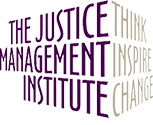Below is the preface to an article by Alexandra Natapoff. I have attached a link to the full article. Why should we care about this subject? An acquaintance of mine recently contested her traffic violation with the Vermont Traffic Bureau. Her only avenue to fight the ticket was to appear in court. There are no other options.
To her surprise, when the non-legally trained judge found her guilty, he stated there would be an additional $65.00 fee for "court time." This particular individual, a school guidance counselor with no criminal or motor vehicle history, left feeling dismayed and aligned with individuals who hate our courts and law enforcement.
Can Vermont Traffic Bureau charge this so-called "filing fee?" Absolutely. The Vermont legislature passed a rule to allow for this to be implemented. In my fourth decade of working with courts, the speed and momentum of adding fines and fees to generate revenue or pay for services, has reached a point where we seem to have moved away from the purpose and role of courts. Our future court leaders and legislators need to ask the intended and unintended consequences of critical decisions affecting individual access to justice. So, with that, I leave you to read on and hope that it sparks your renewal and commitment to keeping the courts open, accessible, transparent, and accountable.
As the United States reconsiders its stance on mass incarceration, misdemeanor decriminalization has emerged as an increasingly popular reform. Seen as a potential cure for crowded jails and an overburdened defense bar, many states are eliminating jail time for minor offenses such as marijuana possession and driving violations, replacing those crimes with so-called “nonjailable” or “fine-only” offenses. This form of reclassification is widely perceived as a way of saving millions of state dollars—nonjailable offenses do not trigger the right to counsel—while easing the punitive impact on defendants, and it has strong support from progressives and conservatives alike.
But decriminalization has a little-known dark side. Unlike full legalization, decriminalization preserves many of the punitive features and collateral consequences of the criminal misdemeanor experience, even as it strips defendants of counsel and other procedural protections. It actually expands the reach of the criminal apparatus by making it easier—both logistically and normatively—to impose fines and supervision on an ever-widening population, a population that ironically often ends up incarcerated anyway when they cannot afford fines or comply with supervisory conditions. The turn to fine-only offenses and supervision, moreover, has distributive implications. It captures poor, underemployed, drug-dependent, and otherwise disadvantaged defendants for whom fines and supervision are especially burdensome, while permitting well-resourced offenders to exit the process quickly and relatively unscathed. Finally, as courts turn increasingly to fines and fees to fund their own operations, decriminalization threatens to become a kind of regressive tax, turning the poorest populations into funding fodder for the judiciary and other government budgets. In sum, while decriminalization appears to offer relief from the punitive legacy of overcriminalization and mass incarceration, upon closer inspection it turns out to be a highly conflicted regulatory strategy that preserves and even strengthens some of the most problematic aspects of the massive U.S. penal system.






